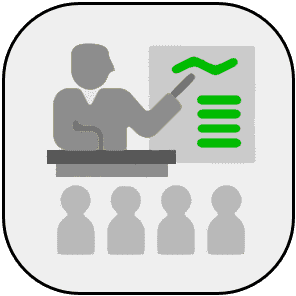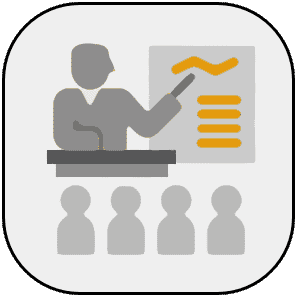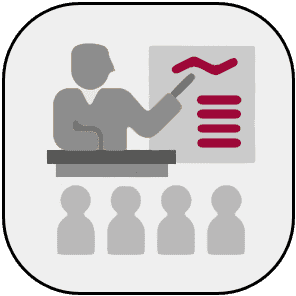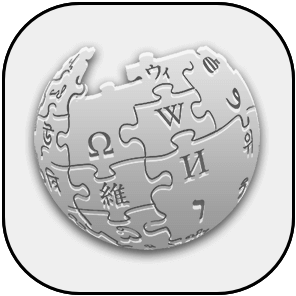Geschichte der Emotionale Intelligenz
Als Psychologen anfingen, über Intelligenz zu schreiben und zu denken, konzentrierten sie sich zuerst auf kognitive Aspekte, wie Gedächtnis und Problemlösung. Jedoch erkannten einige Forscher den Wert der nicht kognitiven Aspekte früh an:
-
Robert Thorndike schrieb 1937 über soziale Intelligenz,
-
David Wechsler definierte Intelligenz als die gesamte oder globale Kapazität der Einzelperson, zweckmäßig zu agieren, rational zu denken, und mit seiner Umgebung (Wechsler, 1958, S. 7) effektiv umzugehen. Bereits 1940 bezog sich Wechsler auf nicht-intellektive sowie intellektive Elemente (Wechsler, 1940), mit denen er die affektiven, persönlichen und sozialen Faktoren meinte. Ausserdem schlug Wechsler bereits 1943 vor, dass die nicht-intellektiven Fähigkeiten für das Voraussagen der Fähigkeit wesentlich sind, um im Leben erfolgreich zu sein.
-
Howard Gardner begann 1983 über mehrfache Intelligenz zu schreiben. Er schlug vor, dass intrapersönliche und zwischenmenschliche Intelligenzen und die Art der Intelligenz (gewöhnlich gemessen durch IQ und verwandte Tests) gleichmäßig wichtig sind.
-
Salovey und Mayer prägten 1990 tatsächlich die Bezeichnung emotionale Intelligenz. Sie beschrieben emotionale Intelligenz als „Form der sozialen Intelligenz, die die Fähigkeit mit einbezieht, die Gefühle und Emotionen von einem selbst und von anderen zu überwachen und unter diesen zu unterscheiden und diese Informationen zu verwenden, um das Denken und Handeln von einem zu leiten“ (Salovey & Mayer, 1990). Salovey und Mayer leiten auch ein Forschungsprogramm ein, das gültige Maße emotionaler Intelligenz entwickeln und ihre Bedeutung erforschen sollte.
Als er die Nachforschungen für sein erstes Buch durchführte, stieß Daniel Goleman in den frühen neunziger Jahren auf die Arbeit von Salovey und Mayer. Ausgebildet als Psychologe in Harvard, wo er mit David McClelland zusammen arbeitete, schrieb Goleman den populären Bestseller „Emotional Intelligence“ (1995), in dem er den ersten „Beweis“ anbot, das emotionale und soziale Faktoren wichtig sind.
Fünf Gebiete der Emotionale Intelligenz
Goleman stimmt 1995 mit Salovey's fünf Hauptgebieten der Emotionale Intelligenz überein (S. 43)
-
Kennen der Gefühle von jemanden. Selbstbewußtsein, erkennen eines Gefühls während es geschieht.
-
Handhaben von Gefühlen. Die Fähigkeit des Umgangs mit Gefühlen, so dass sie angebracht sind.
-
Sich selbst motivieren. Ordnen von Gefühlen im Dienste eines Zieles.
-
Erkennen von Gefühlen in anderen. Einfühlungsvermögen, soziales Bewußtsein.
-
Umgehen mit Verhältnissen. Fähigkeit, die Gefühle von anderen zu handhaben.
Vier Gebiete der Emotionale Intelligenz
Seit kurzem bevorzugt Goleman nur vier Gebiete der EI. Die 4 Gebiete haben 19 Kategorien, wie 2002 in seinem Buch „Primal Leadership“ beschrieben. 2 Extrakategorien wurden durch die Hay Group hinzugefügt:
-
Selbstbewusstsein (emotionales Selbstbewusstsein. Genaue Selbstbewertung und Selbstvertrauen)
-
Selbst-Management (emotionale Selbstkontrolle. Transparenz (Vertrauenswürdigkeit). Anpassungsfähigkeit. Ergebnisorientierung. Initiative. Optimismus. Pflichtbewusstsein)
-
Soziales Bewußtsein (Einfühlungsvermögen. Organisatorisches Bewusstsein. Serviceorientierung)
-
Relationship Management (Inspirative Führung. Einfluss. Entwickeln anderer. Ändern von Katalysatoren. Konfliktmanagement. Bindungen aufbauen. Teamwork und Zusammenarbeit. Kommunikation)
Eine wichtige Sache zum verstehen ist, dass - entsprechend Goleman - diese EI Kompetenzen nicht angeborene Talente sind. Sie sind erlernte Fähigkeiten.
IQ oder EI?
Nach Ansicht einiger Wissenschaftler ist IQ alleine nicht ein sehr guter Voraussager von Job-Performance. Hunter und Hunter (1984) schätzten, dass IQ bestenfalls ungefähr 25 Prozent der Abweichung erklärt. Sternberg (1996) hat unterstrichen, dass sich Studien unterscheiden und das 10 Prozent eine realistischere Schätzung ist. In einigen Studien erklärt IQ nur 4 Prozent der Abweichung. In einer neueren Meta-Analyse, welche die Wechselbeziehung und die vorbestimmte Gültigkeit der EI, im Vergleich zu IQ oder allgemeiner Geistesfähigkeit überprüft, fanden Van Rooy und Viswesvaran (2004) heraus, dass IQ ein besserer Prophet für die Arbeit und die akademische Leistung ist, als EI. Jedoch, wenn es zur Frage kommt, ob eine Person ein „Star Performer“ (in den oberen 10 Prozent, gleichwohl solche Leistung passend beurteilt wird) innerhalb dieser Rolle sein wird, oder ein hervorragender Leiter, kann IQ ein weniger leistungsfähiger Prophet sein, als emotionale Intelligenz (Goleman 1998, 2001, 2002).
IQ und EI: reine Arten
Entsprechend Goleman sollten IQ und EI nicht als Kompetenzen mit einer entgegengesetzten Richtung angesehen werden. Es sind ziemlich unterschiedliche Kompetenzen. Leute mit einem hohen IQ, aber niedriger EI (oder dem Entgegengesetzten) sind, trotz der Stereotypen, verhältnismäßig selten. Es gibt eine Wechselbeziehung zwischen IQ und einigen Aspekten der EI. Die Stereotypen (reine Arten) sind:
-
(Reiner) Mann mit hohem IQ. Er wird - keine Überraschung - durch eine breite Reihe von intellektuellen Interessen und Fähigkeiten verkörpert. Er ist ehrgeizig und produktiv. Vorhersagbar und hartnäckig. Und ungestört durch Bedenken über sich selbst. Er neigt auch dazu, kritisch und herablassend zu sein. Anspruchsvoll und gehemmt. Unbehaglich mit Sexualität und sinnlicher Erfahrung. Ausdruckslos und abgetrennt. Und emotional mild und kalt.
-
(Reiner) Mann mit hoher EI. Er ist sozial balanciert. Aus sich herausgehend und heiter. Nicht geneigt zu Ängstlichkeit oder zu gesorgter Rumination. Er hat eine bemerkenswerte Kapazität für Einsatz für Leute und Ursachen, für das Übernehmen von Verantwortlichkeit und für das Besitzen eines ethischen Ausblicks. Er ist sympatisch und fürsorglich in seinen Beziehungen. Sein emotionales Leben ist reich, aber angemessen. Er fûhlt sich wohl mit sich selbst, mit anderen und dem sozialen Universum, in dem er lebt.
-
(Reine) Frau mit hohem IQ. Sie hat das erwartete intellektuelle Vertrauen. Sie ist fließend im Ausdrücken ihrer Gedanken. Schätzt intellektuelle Angelegenheiten. Und hat eine breite Reihe an intellektuellen und ästhetischen Interessen. Sie neigt dazu, beschaulich zu sein. Neigt zu Angst, Rumination und Schuld. Und zögert, ihren Zorn öffentlich auszudrücken.
-
(Reine) Frau mit hoher EI. Sie neigt dazu, ausdrücklich zu sein und drückt ihre Gefühle direkt aus. Und fühlt positiv über sich selbst. Das Leben hat Bedeutung für sie. Sie ist aus sich herausgehend und gesellig. Und drückt ihre Gefühle angemessen aus. Sie passt sich gut Druck an. Ihre soziale Haltung lässt sie leicht neue Leute kennen lernen. Sie fühlt sich wohl genug mit sich selbst, um spielerisch, spontan, und offen gegenüber sinnlicher Erfahrung zu sein. Sie fühlt sich selten schuldig oder sinkt in Rumination.
Beurteilen und messen von Emotionale Intelligenz
Instrumente, die für das Messen der Emotionale Intelligenz benutzt werden
-
EQ-I (Bar-On, 1997): ein Selbstreportsinstrument, um jene persönlichen Qualitäten zu beurteilen, die einigen Leuten ermöglichten, besseres emotionales Wohl als andere zu besitzen.
-
Multifaktoren Emotionale Intelligenz-Skala (Mayer, Caruso & Salovey, 1998): eine Prüfung der Fähigkeit, in der der Testnehmer eine Reihe von Aufgaben durchführt, die entworfen sind, um die Fähigkeit der Person zu beurteilen Gefühle wahrzunehmen, zu identifizieren, zu verstehen und mit ihnen zu arbeiten.
-
Emotional Competence Inventory (ECI) (Goleman, 1998): ein 360-Grad-Instrument, mit dem Leute die Einzelpersonen innerhalb einer Organisation auswerten (einzelne Feedback-Reports). Oder die Organisation als Ganzes (Arbeitskräfte Audits). Diese Audits können ein organisatorisches Profil für jede Gruppengröße innerhalb der Firma zur Verfügung stellen. Das Emotional Competence Inventory arbeitet mit den 19/21 Kompetenzen, die oben beschrieben wurden (sehen Sie unter den vier Gebieten der EI).
Buch: Daniel Goleman - Emotional Intelligence
|
Emotionale Intelligenz Fachgruppe.

Fachgruppe (4 Mitglieder)
|
|
|
Kurse über Emotionale Intelligenz.

Anfängerkurs
|

Fortgeschrittener Kurs
|

Kurs für Experten
|
|
|
|
Die am besten bewerteten Themen über Emotionale Intelligenz. Hier finden Sie die wertvollsten Ideen und praktischen Vorschläge.
|
🥈
|
Intelligence of the Heart
I shall begin with some some real life incidents that happened to me.
Incident 1: the girl standing up for her friend.
One day I was traveling in a general compartment of a train. To be precise i...
 55  79 Kommentare
|

|
Emotional Intelligence versus IQ
I think we can link EQ with wisdom and IQ with knowledge. One can be knowledgeable with others knowledge but one cannot be wise with others wisdom.
That effectively leaves EQ to the genes and IQ to t...
 13  6 Kommentare
|

|
Where does Wisdom come from?
Why are some wiser? We see educated people but unwise. We see less literate people but wise. Is it one's thoughts which make someone wise/unwise? Or is it something else? Where does the wisdom come fr...
 10  5 Kommentare
|

|
Emotional Intelligence = Maturity?
Would Emotional intelligence not be the same as maturity. Ordinarily, maturity comes with age, but sometimes you find a young person who behaves or handles situations with more maturity than his chr...
 8  4 Kommentare
|

|
Cleaning our Emotions
The important thing about emotional intelligence is self awareness. It starts with knowing oneself, and with cleaning all those feelings that have blurred our most beautiful feelings of love, compassi...
 8  4 Kommentare
|

|
How can EQ and IQ be Combined?
Of course, EQ and IQ can be combined in one individual. But how can we assess the extent to an individual is successful in achieving this?
The potential of an individual can briefly be described by t...
 5  7 Kommentare
|
|
|
|
Erweiterte Einblicke zu Emotional Intelligence (Englisch). Hier finden Sie professionelle Ratschläge von Experten.

Beratungstipps
|

Unterrichtstipps
|

Praktische Umsetzungstipps
|
|
|

|
Theory of Multiple Intelligences Skills Development
In 1983, Howard Gardner proposed the Theory of Multiple Intelligences. The theory suggests that intelligence is not a s...
|

|
The Brain's Lymbic System is an Open-loop System. The Phenomenon of Mirroring EI Awareness
A closed-loop system is self-regulating, it is not influenced by things outside of the system.
An open-loop system depe...
|

|
How to Develop Your / Someone's Emotional Intelligence? Emotional Intelligence Development, Coaching, Mentoring
In order to develop Emotional Intelligence, Steve Hein suggests adopting following habits:
- Become emotionally literat...
|

|
How to Prepare for a Critical Situation Leadership, Crisis Management, Preparing for a Major Event, Preparing for a Pivotal Moment, Coaching, Negotiating
When people are connected to their core self and values, they are more likely to achieve their best performance as they ...
|

|
How to Assess Your / Someone's Social Intelligence and Leadership Skills Social Intelligence, Leadership Development
In their article "Social Intelligence and the Biology of Leadership" (HBR, September 2008), Daniel Goleman and Richard B...
|

|
Limitations of Emotional Intelligence EI Consulting, Coaching, Mentoring, Measuring Emotional Intelligence
Some significant limitations of Emotional Intelligence mentioned by academics as well as professional are as follows:
-...
|

|
The Importance of Self-awareness for Project Managers Professional Development, Personal Development, Project Management, Ethics, Beliefs, Values, Emotional Intelligence
Self-awareness is how an individual consciously knows and understands their own character, feelings, motives, and desire...
|

|
Emotional Style and Leadership Performance Leadership Coaching, Understanding the Mechanisms behind Leadership
Goleman made another contribution to the study of successful leadership. This represented a deeper analysis of earlier r...
|

|
How to Develop Better Relational Skills? Human Resources, Leadership
Although it is not necessary to be interested in or skilled at all four dimensions of relational work in order to succee...
|

|
Thorndike on Intelligence 1920 3 distinct types
E.L. Thorndike (1920: Intelligence and its uses) distinguished between three distinct types of intelligence:
1. Abstrac...
|

|
Reasons and Remedies to Dissonance in Leaders Primal Leadership, Emotional Intelligence, Stress, Cognitive Dissonance, Resonance
In today’s constantly changing, challenging and demanding environment, it is hard for leaders to remain effective and re...
|

|
Bar-On Measure of EQ 1985 Measuring EQ
R. Bar-On (1985: The development of an operational concept of psychological well-being) mentions 5 interdependent dimens...
|

|
History of Emotional Intelligence Emotional Intelligence, ESCI Model
According to the user guide for accredited practitioners of the Emotional and Social Competency Inventory (ESCI) Model, ...
|
|
|
|
Verschiedene Informationsquellen zu Emotionale Intelligenz. Hier finden Sie Powerpoints, Videos, Nachrichten usw., die Sie in Ihren eigenen Vorträgen und Workshops verwenden können.

|
Facial Expressions Emotion Recognition
Study by Hillary Anger Elfenbein presents data on training to improve the accuracy of judging facial expressions of emot...
|

|
EI: What it is and Why it Matters History, Current Interest, Value of EI
History of the Emotional Intelligence concept as an area of research. Description how it has come to be defined and meas...
|

|
Applying EI to a Job Interview Job Interviews
10 ways to apply Ei to a job interview. By M.Peer Mohamed Sardhar...
|

|
22 Guidelines for Best Practices Training EI at Work
22 guidelines for best practice in the area of training and developing social and emotional competencies at work
These ...
|

|
Emotional Intelligence Conflict Management
Study by M. Afzalur Rahim a.o. investigates the relationships of the five dimensions of emotional intelligence: self-awa...
|

|
Emotional Intelligence - A Leader’s Primer Emotional Intelligence
Presentation on meaning of 4 EI Competencies (Self-Awareness,
Self-Management, Social Awareness, Relationship Managemen...
|

|
Interview Goleman on Emotional Intelligence Introduction to Emotional Intelligence
According to Daniel Goleman emotional intelligence refers to how well we handle ourselves and relationships.There are fo...
|

|
NLP: The 6 Neurological Levels 6 layers to view at the reality of a person or issue
Neuro Linguistic Programming (NLP) is used increasingly by businesses and individuals in HR, marketing, sales and organi...
|

|
Emotional Intelligence: Job Performance and Career Success Emotional Intelligence, Management Development, Career Management, Career Assessments
Presentation about Emotional Intelligence includes the following sections:
1. Background
1.1 Old versus New Career Par...
|

|
The Influence of Emotions and Moods on Decision-Making and Entrepreneurship Decision Making, Emotional Intelligence, Entrepreneurship, Cognitive Bias
This presentation is about emotions in decision-making, thereby paying specific attention to Emotional Intelligence
1. ...
|

|
Howard Gardner's Eight Intelligences Intelligences Research
A presentation about Gardner, one of the four authors mentioned as inventors of emotional intelligence. A more detailed...
|

|
Advice to Improve Your Emotional Intelligence Improve Your Emotional Intelligence
First five top tips out of 55 for developing emotional intelligence. By Doug Constant. Remaining 50 tips available for $...
|

|
Common Negative Feelings EI Education
Comprehensive list of around 100 negative feelings in 6 categories....
|

|
Recognizing Stress in Yourself and Your People Coping with Stress, Avoiding Stress, Emotional Intelligence, Stress Management
What is stress?
Stress is a feeling of being overloaded, wound-up and worried.
How can you recognize stress in yours...
|

|
Practical Communication Tips for Managers Management Skills, Leadership Skills, Management Development, Leadership Development, Situational Leadership
As manager you need to combine professional expertise and experience with specific character traits, interpersonal and c...
|

|
Managing Psychological Well-being in Workplaces Organizational Commitment, Performance Management, Stress Management, Workplace Management
This presentation elaborates on the developing of efficient workplaces through mental well-being. The presentation inclu...
|

|
Peer and Co-worker Relationships Relationship Management, Emotional Intelligence, Coaching, Emotional Work, Relationship at Work, Employee Relationships
This presentation is about the relationship between peer and co-workers, and includes the following sections:
1. Nature...
|

|
Emotions In Finance and Economics Decision Making, Behavioral Economics, Behavioral Finance
Detailed presentation about the role of emotions in making decisions. The presentation includes the following sections:
...
|
|
|
|
Nützliche Tools bezüglich Emotionale Intelligenz.

Nachrichten
|

Videos
|

Präsentationen
|
| |

Bücher
|

Akademisch
|

Mehr
|
|
|
|
Vergleichen Sie mit Emotionale Intelligenz: Kulturelle Intelligenz | Whole Brain Modell | Johari Fenster | Attributionstheorie | Führungsstile | Framing | ERG Theorie | Weg-Ziel Theorie | 4 Dimensionen der guten Beziehungen | Konkurrierende Werte Rahmenwerk | Bedürfnispyramide | Sechs Veränderungsansätze | Sieben Wege zur Effektivität | PAEI Managementrollen | Aktionsbasiertes Lernen | Team Management-Profil
Zurück zur Managementdisziplin: Kommunikation & Fähigkeiten | Ethik & Verantwortung | Human Resources | Führung
Mehr Managementmethoden, Modelle und Theorie
|
|
|














